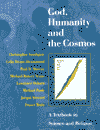Critical Realism in Science and ReligionCritical realism - a way of understanding truth-claims in science and theology We start by considering how science operates. We dismiss the position known as ‘naïve realism’, which simply holds that every scientific discovery directly corresponds to a truth about the world. Scientific views always depend on particular preconceptions about the world and particular ways of measuring it; they are moreover in a continual state of change, and in some cases undergo radical correction - these considerations are enough to rule out naïve realism. Equally, however, the success of the various sciences seems to suggest that they do manage to articulate something of the complexity of reality, in a way which is open to ever-new discoveries. So we rule out also any of the more extreme forms of ‘idealism’ which promote the notion that mental concepts are somehow more real than the physical world. We revert to assessing a more sophisticated form of realism, frequently referred to as ‘critical realism’. The critical realist holds that there is a progressive closening between our views of reality and reality itself, but recognises that we hold our views provisionally, that we cannot simply read off the nature of the world from scientific data. The theories and presuppositions with which we approach our studies are acknowledged to affect our selection of what data we count as important to collect, as well as the ways in which we interpret these data. For example, simple measurements using something as basic as an electricity meter rest upon commitments to theories about interactions between current-carrying conductors and magnetic fields. Experimental data are never other than theory-laden, and there is never enough data totally to demonstrate every element of a theory. Other reasons for adopting a critical approach take into account the fact that observations themselves affect the character of an entity as it is observed (see the rediscovery of the observer). Click to investigate judging the fit between data and reality See also alternatives to a realist position Or go to applying critical realism to theology
Email
link | Feedback | Contributed by: Dr. Christopher Southgate
|





